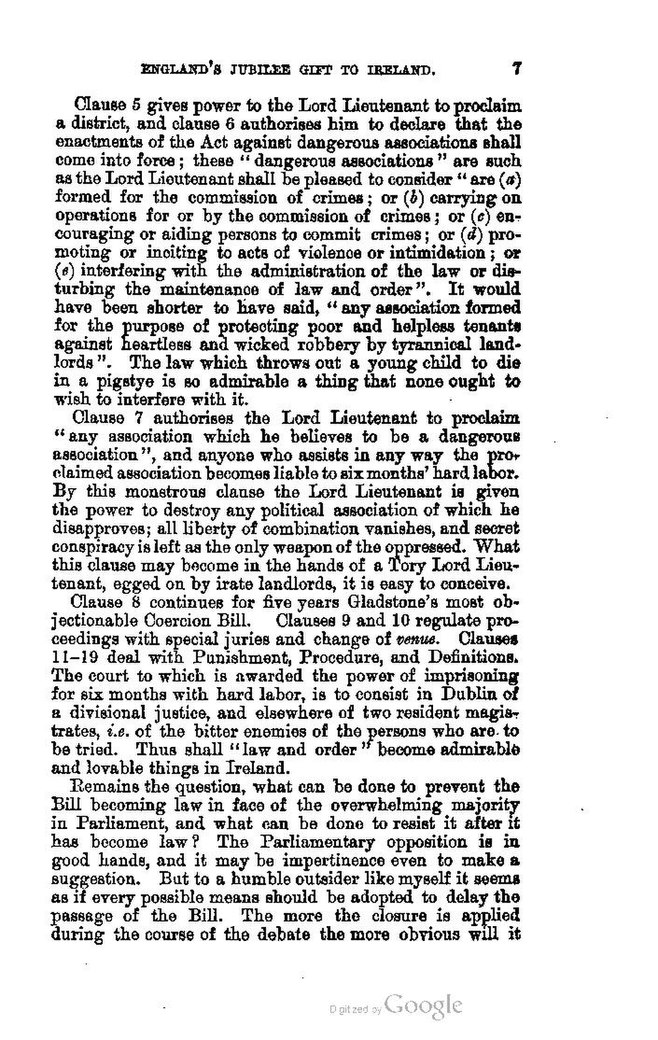Clause 5 gives power to the Lord Lieutenant to proclaim a district, and clause 6 authorises him to declare that the enactments of the Act against dangerous associations shall come into force; these "dangerous associations" are such as the Lord Lieutenant shall be pleased to consider "are (a) formed for the commission of crimes; or (b) carrying on operations for or by the commission of crimes; or (c) encouraging or aiding persons to commit crimes; or (d) promoting or inciting to acts of violence or intimidation; or (e) interfering with the administration of the law or disturbing the maintenance of law and order". It would have been shorter to have said, "any association formed for the purpose of protecting poor and helpless tenants against heartless and wicked robbery by tyrannical landlords". The law which throws out a young child to die in a pigstye is so admirable a thing that none ought to wish to interfere with it.
Clause 7 authorises the Lord Lieutenant to proclaim "any association which he believes to be a dangerous association", and anyone who assists in any way the proclaimed association becomes liable to six months' hard labor. By this monstrous clause the Lord Lieutenant is given the power to destroy any political association of which he disapproves; all liberty of combination vanishes, and secret conspiracy is left as the only weapon of the oppressed. What this clause may become in the hands of a Tory Lord Lieutenant, egged on by irate landlords, it is easy to conceive.
Clause 8 continues for five years Gladstone's most objectionable Coercion Bill. Clauses 9 and 10 regulate proceedings with special juries and change of venue. Clauses 11–19 deal with Punishment, Procedure, and Definitions. The court to which is awarded the power of imprisoning for six months with hard labor, is to consist in Dublin of a divisional justice, and elsewhere of two resident magistrates, i.e. of the bitter enemies of the persons who are to be tried. Thus shall "law and order" become admirable and lovable things in Ireland.
Remains the question, what can be done to prevent the Bill becoming law in face of the overwhelming majority in Parliament, and what can be done to resist it after it has become law? The Parliamentary opposition is in good hands, and it may be impertinence even to make a suggestion. But to a humble outsider like myself it seems as if every possible means should be adopted to delay the passage of the Bill. The more the closure is applied during the course of the debate the more obvious will it
